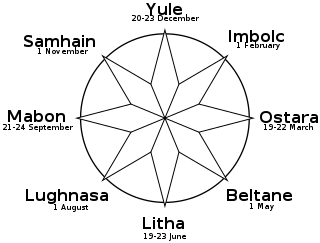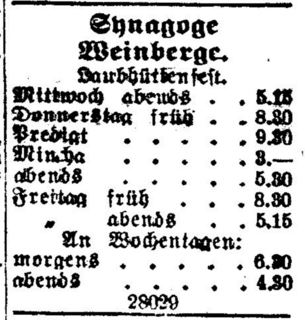 W
WAmrit Velā begins at the start of a new day, therefore, begins at 3:00 am and ends at 6:00 am, [1] which is used for daily meditation and recitation of Gurbani hymns. Guru Nanak in the Japji Sahib says, "During the hours of Amrit velā, meditate on the grandeur of the one true Name."[1] The importance of Amrit Vela is found throughout the Guru Granth Sahib. The Guru Granth Sahib states that "those who consider themselves a Sikh must wake up daily at Amrit Vela and be in tune with the Naam "[3]
 W
WIn the practice of Christianity, canonical hours mark the divisions of the day in terms of fixed times of prayer at regular intervals. A book of hours, chiefly a breviary, normally contains a version of, or selection from, such prayers.
 W
WIn the practice of Christianity, canonical hours mark the divisions of the day in terms of fixed times of prayer at regular intervals. A book of hours, chiefly a breviary, normally contains a version of, or selection from, such prayers.
 W
WPralaya, in Hindu cosmology, is an aeonic term for dissolution.
 W
WSalah times are prayer times when Muslims perform salah. The term is primarily used for the five daily prayers including the Friday prayer, which is normally Dhuhr prayer but on Fridays it is obligated to be prayed in a group. The salah times were taught by Allah to Muhammad.
 W
WThe Wheel of the Year is an annual cycle of seasonal festivals, observed by many modern Pagans, consisting of the year's chief solar events and the midpoints between them. While names for each festival vary among diverse pagan traditions, syncretic treatments often refer to the four solar events as "quarter days" and the four midpoint events as "cross-quarter days", particularly in Wicca. Differing sects of modern Paganism also vary regarding the precise timing of each celebration, based on distinctions such as lunar phase and geographic hemisphere.
 W
WZmanim are specific times of the day in Jewish law.In Jewish law, a calendar day is defined as running from "evening" to "evening." This is based on the repetition of the phrase "... and there was evening, and there was morning ..."—evening preceding morning—in the account of creation in Genesis. Additionally, Jewish law requires certain activities to be undertaken "during the day"—or at a certain time during the day—while other activities are to be undertaken "at night"—or at a certain time during the night.